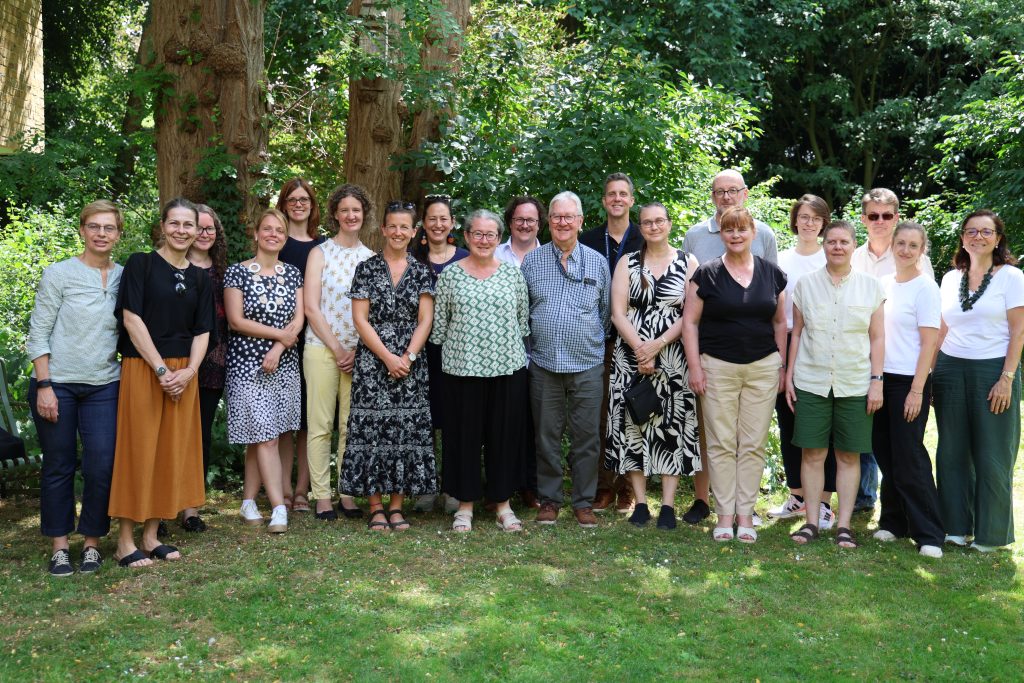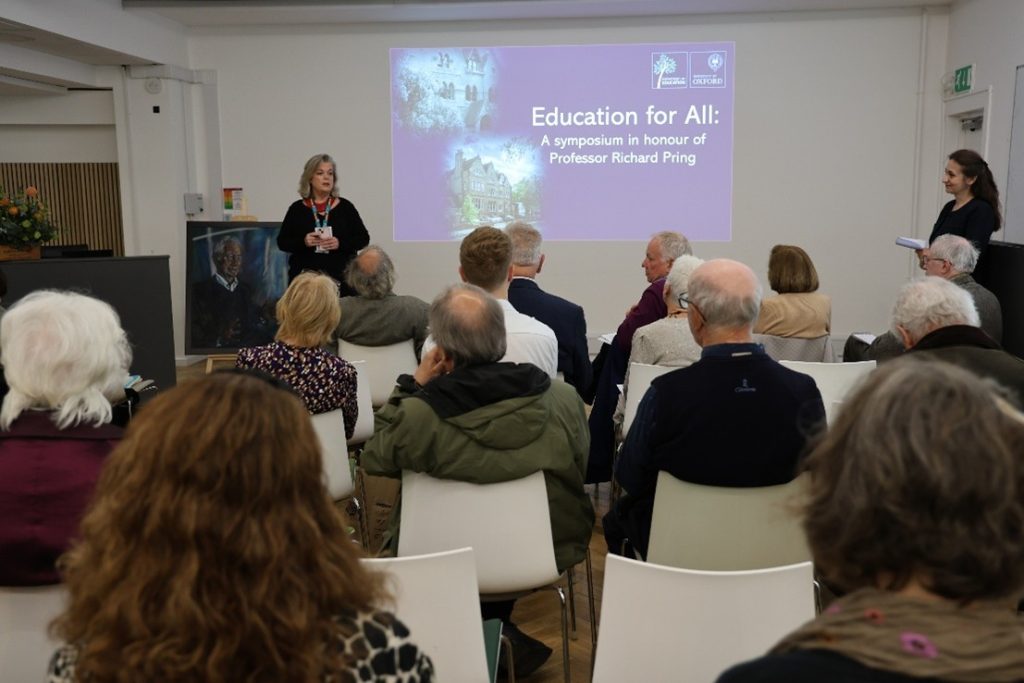A group of researchers from Oxford University’s Department of Education and one from UCL’s IOE have won a prestigious award from the British Educational Research Association.
The BERA College of Reviewers have awarded a BERA Public Engagement and Impact award for the research which was on “Effective Provision of Preschool, Primary and Secondary Education (EPPSE) – Transforming Early Education Policy and Practice”.
The team of five principal investigators were Professor of Child Development and Education, Iram Siraj, Professor Emeritus and Honorary Research Fellow, Kathy Sylva, Professor of Human Development Edward Melhuish, Professor Emeritus of Education Pam Sammons – all from the Department of Education – and Honorary Senior Research Associate, Brenda Taggart, from IOE – UCL’s Faculty of Education and Society.
The research, which took place from 1997 to 2003, won the award for providing the foundations for policy change, recognising the projects’ long-term impact. It focussed on finding out what constituted effectiveness and quality in pre-school practice with extensions covering primary (EPPE 2003 – 2008) and secondary (EPPSE 2008- 2014) education.
Speaking on behalf of the team, Principal Investigator, Iram, said: “We are delighted and honoured to receive this prestigious award from BERA, especially because this association represents our peers in the education research community.
“We are pleased to be recognised by BERA because we planned our research from the very beginning to be useful to researchers, early years staff as well as policy-makers.?Our ‘impact and dissemination strategy’ enabled us to make research findings accessible to all.?BERA is also committed to making research useful to these vital audiences. The award will support further dissemination in the UK and overseas, as it will make clear to educators and policymakers the rigour and importance of the research since we followed up our sample from age 3 to 18. Our combination of a mixed methods and ‘effectiveness’ design led us to rich, rigorous findings relevant to policy and practice across different phases of education.”
EPPSE showed that early learning shapes children’s development; it benefits all children but matters more for children from disadvantaged families. It investigated both academic and social/behavioural development alongside the influence of the family on long term outcomes.
The research drew particular attention to the importance of the early years home learning environment. It developed new ways to measure preschool quality and demonstrated the importance of high-quality early educational experiences for long term benefits, especially for children from more vulnerable backgrounds.?EPPSE also showed how mixed-method, longitudinal studies can contribute to understanding of the – what, why and how of high-quality early learning experiences.
Iram continued: “The impact has been wide-ranging in the UK and abroad. During the nearly twenty years of the EPPSE research, early childhood education and care has undergone a global expansion and the EPPSE findings have provided crucial research evidence to inform policy and practice. We contributed sharply to the debate which promoted children’s right to quality early years care and education when priority was largely on ‘access?to childcare provision’. We shifted the focus to the ‘quality’ of?both care and early learning at home and pre-school.?The findings have influenced increased spending on research, expansion of the sector and shone a light on improving training and qualifications for staff with a focus on child development and effective pedagogy.”
At the end of the project, the full EPPSE database was uploaded to the Essex Archive making it a heritage resource for students and researchers of the future.?Members of the team continue to build on the research legacy of the study by working with and inspiring other research teams across the world such as in Australia, China, Germany, Norway and Singapore. In addition, the team has developed evidence-based resources such as quality rating scales and professional development studies and their evaluations, which are taking place in the UK and abroad, support practitioners and policy makers to advance systems which prioritise quality uplift.
Read more about the BERA Public Engagement and Impact Award on the BERA website.











